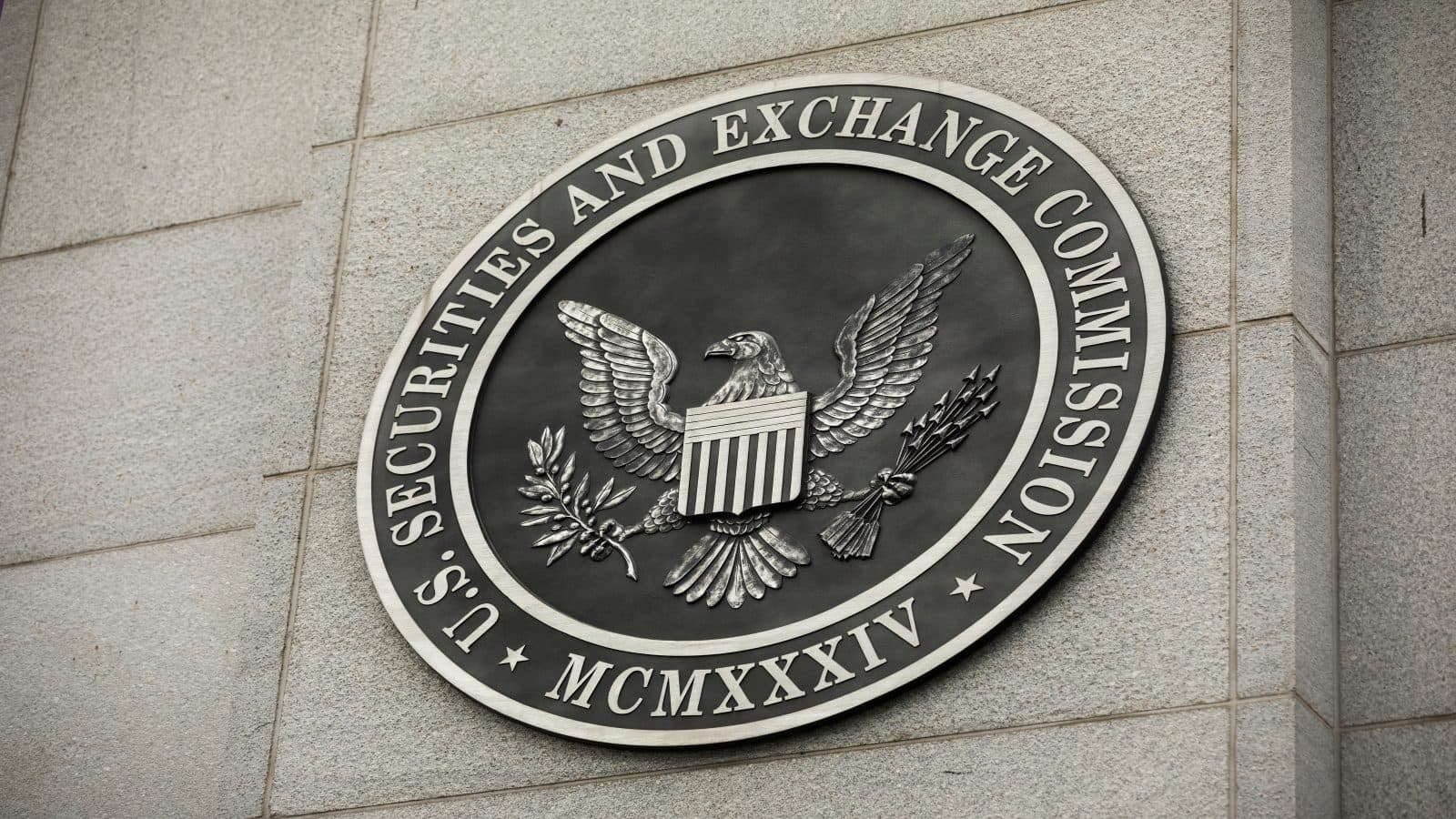SEC Sues Crypto Broker Owner, Salesmen for Alleged Fraud
Chicago Crypto Capital allegedly raised $1.5 million by offering unregistered Beaxy tokens to inexperienced investors

US Securities and Exchange Commission building exterior. Washington DC. Credit: Shutterstock
- The firm’s owner Brian Amoah and two other staff weren’t registered as broker-dealers
- Investors were charged undisclosed markups and weren’t told about financial troubles with BXY’s issuer
The Securities and Exchange Commission (SEC) continues to enforce legal action against bad actors in the crypto industry as regulators take steps to bolster investor protection laws.
Chicago Crypto Capital and three of its personnel were accused of defrauding investors by offering unregistered cryptoasset securities, an announcement on Wednesday showed.
The crypto broker’s owner Brian Amoah and former salesmen Darcas Oliver Young and Elbert “Al” Elliott allegedly functioned as illegal broker-dealers by offering unregistered Beaxy tokens (BXY), helping them raise $1.5 million from 100 inexperienced investors between Aug. 2018 and Nov. 2019.
BXY was issued by defunct crypto exchange Beaxy, which allegedly struck a deal with Chicago Crypto Capital in Aug. 2018 to sell these tokens.
But the SEC said BXY was not registered with the Commission, nor did it satisfy exemption criteria. Further, none of the parties involved were eligible brokers.
The company allegedly made false claims to investors about the custody and delivery of BXY tokens, add-on fees charged by the firm, their personal investments in BXY and financial trouble with the issuer Beaxy.
“Each of these misstatements would be information a reasonable investor would want to know,” the regulator wrote in its complaint.
Consequently, some investors never managed to secure their BXY holdings and all investors ended up paying an unknown amount on their tokens, the SEC said.
So far, only Young has agreed to settle with the regulator for an undisclosed sum.
Chicago Crypto Capital sells cryptoassets and promotes other blockchain-related investments. Its website describes itself as an advisory firm created to explore decentralized finance.
Crypto-related enforcement actions have escalated in recent months after liquidity concerns in the industry. SEC Chair Gary Gensler reiterated this week that crypto firms should register with regulators. He said that the vast majority of nearly 10,000 tokens in the market are securities, and that he’s asked staff to work with crypto entrepreneurs to get their tokens registered.
CCC didn’t return Blockworks’ request for comment by press time.
Get the news in your inbox. Explore Blockworks newsletters:
- The Breakdown: Decoding crypto and the markets. Daily.
- 0xResearch: Alpha in your inbox. Think like an analyst.






